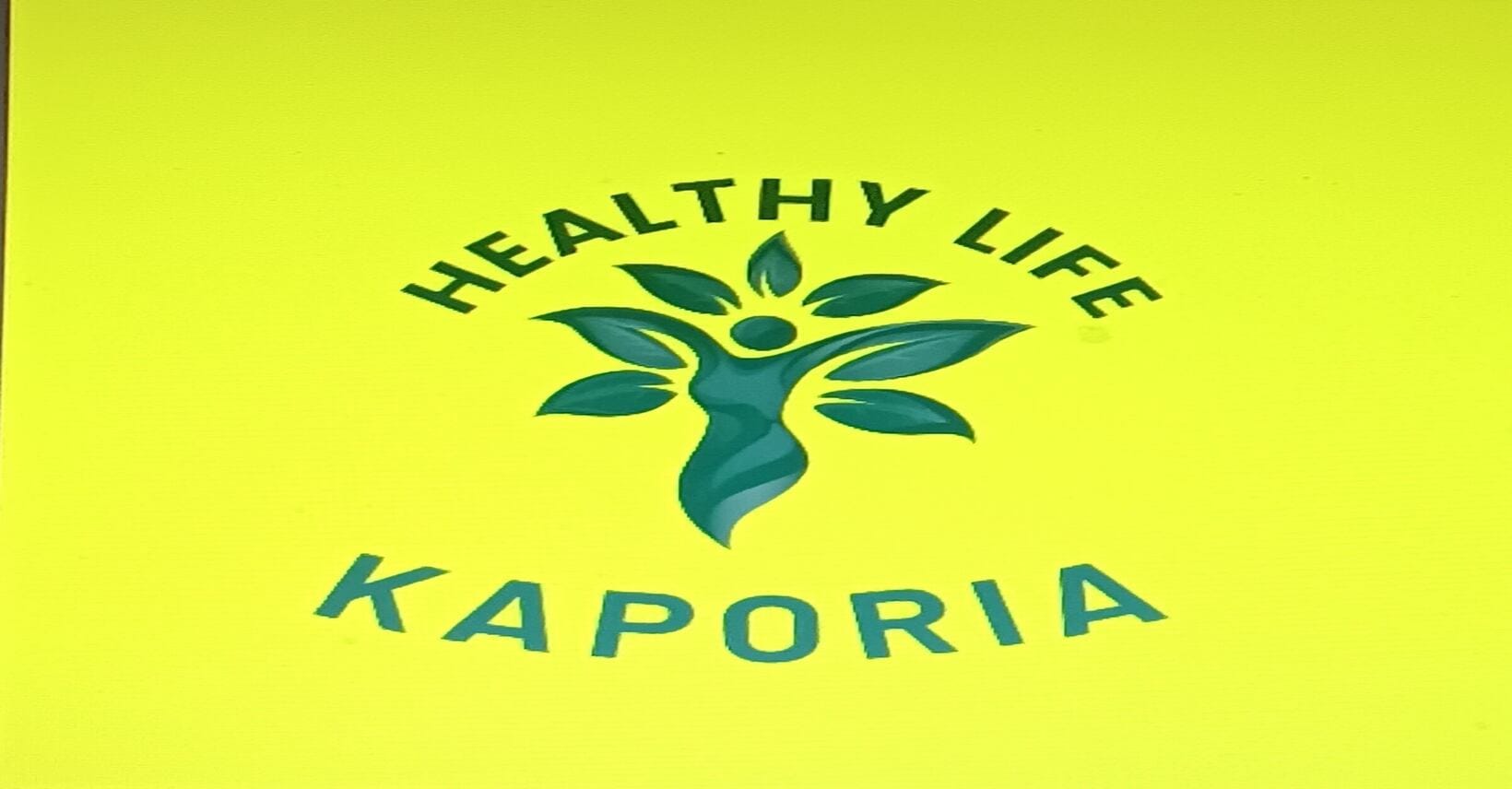[ad_1]
Peer staff are individuals with lived and residing expertise of psychological well being challenges who use these experiences as a self-discipline lens for his or her work. Peer staff at the moment are seen as an integral a part of the psychological well being workforce in lots of high-income nations. One of many fundamental skilled duties that many peer staff interact in is their participation in peer assist with purchasers attending psychological well being companies.
The event and implementation of peer assist interventions in psychological well being contexts has quickly grown in current many years. The amount of analysis within the space has additionally grown, and there at the moment are many narrative, scoping, and systematic opinions. Ruth Cooper and colleagues (2024) undertook a systematic umbrella assessment, which is a substantial piece of labor that summarises present opinions of the literature. Of their assessment, they sought to deal with three analysis questions:
- “What’s the effectiveness (e.g., scientific, social, purposeful) and cost-effectiveness of paid peer assist approaches for psychological well being?”;
- “What influences the implementation of peer assist approaches for psychological well being?”; and
- “What are the experiences of peer assist approaches for psychological well being (e.g., acceptability) from the angle of peer assist staff, healthcare practitioners, service customers, carers?”
Earlier than we describe the method to the assessment and what was discovered, we needed to spotlight a number of points to contemplate when reviewing literature on peer assist. On this weblog publish, we use the time period ‘peer employee’ to imply an individual employed to interact in peer assist with friends, and the time period ‘peer assist’ to discuss with the actions and relationship that the peer employee and peer interact in. We acknowledge that that is aspirational language, as the sphere suffers significantly from inconsistent use of phrases. For instance, a peer assist programme developed by individuals with lived expertise skilled in a longtime mannequin of peer assist (e.g., Intentional Peer Help) and a psychoeducation intervention developed by psychologists and delivered by paid peer staff may each be referred to as peer assist, however the nature of those two experiences is prone to be fairly completely different. Traditionally, researchers (together with Magenta, one of many co-authors of this weblog!) haven’t achieved an amazing job of describing intimately the event and implementation of peer assist interventions and peer work roles, which is why endeavor opinions on this space is difficult (King and Simmons, 2018).
Enterprise a randomised or managed trial to check the effectiveness of peer assist, or endeavor a assessment of a majority of these trials, can be difficult provided that the underlying ideas of peer assist are usually not predicated on a ‘deficit mannequin’. That is at odd with the purpose of testing effectiveness, which is all about seeing what works to repair an issue (Gillard, 2019). Peer staff don’t deal with ‘psychological sickness’ as being one thing ‘flawed’ with an individual, however quite they deal with an individual’s strengths and conceptualise misery and psychological well being challenges as an individual dealing with components comparable to experiences of trauma, poverty, and different types of social exclusion.
When contemplating peer assist within the context of psychological well being, it’s additionally vital to acknowledge the broad vary of experiences that encompasses. Not solely when it comes to the varieties of challenges skilled (e.g., what may be referred to as anxiousness, despair, psychosis) but additionally when it comes to severity. The diploma to which peer assist may end in constructive outcomes in relation to psychological well being challenges (i.e., signs or scientific outcomes) is prone to rely upon the varieties of challenges confronted by friends. This isn’t to say that peer assist received’t enhance outcomes for individuals who expertise completely different challenges, however it does elevate the query about what outcomes must be measured in research on peer assist. It’s additionally vital to consider who decides on what the proper outcomes are, as what individuals with lived expertise prioritise is prone to be completely different to what clinicians and non-lived expertise researchers suppose is vital. In a assessment of youth peer assist interventions, for instance, we discovered little or no proof of the involvement of individuals with lived expertise within the design of both peer assist interventions of analysis testing the effectiveness of those interventions (Simmons et al.).

The implementation of peer assist interventions within the psychological well being area constantly grows, however how efficient are they?
Strategies
To undertake this assessment, the authors labored along with a lived expertise working group throughout every stage (Cooper et al, 2024). Different markers that display the standard of this assessment embody the registration of the protocol, the usage of standardised reporting tips, and a high-quality methodological method, together with formal high quality value determinations of the opinions, and the usage of a framework (Consolidated Framework for Implementation Analysis) to report and interpret the findings referring to implementation components. Together with the big but helpful tables within the manuscript itself, there’s a treasure trove of data within the supplementary recordsdata, together with extra detailed descriptions of the themes referring to the experiences of peer staff (file 7).
Systematic, scoping, or realist opinions have been included in the event that they have been printed in a peer reviewed journal and reported on an final result referring to the goals described above. Throughout the opinions, no less than half of the included research needed to be interventions delivered by paid peer staff or household peer staff (individuals not bots or AI) for service customers and caregivers of any age in a psychological well being setting.
Enterprise an umbrella assessment requires researchers to make a sequence of selections about what to incorporate or disregard. A few of these choices are moderately easy, for instance this umbrella assessment included quantitative opinions provided that a top quality appraisal was achieved as a part of the unique assessment. Different choices are extra nuanced and must be thought of in relation to different choices that might have been taken.
As seen within the goals above, a selection was made to deal with peer assist interventions delivered by paid peer staff. This was achieved as a result of the authors hoped this is able to act as a proxy for higher skilled and supported peer staff. When endeavor an umbrella assessment, you possibly can’t change what has occurred both within the unique analysis research or within the opinions of such research (as a result of the researchers conducting these works have made their very own decisions and these can typically make it troublesome to impose your inclusion and exclusion standards). Which means it’s essential to make ‘greatest wager’, typically arbitrary choices about the place to attract the road.
As talked about above, opinions have been included if no less than 50% of the included research have been interventions offered by paid peer staff. This deal with paid peer staff is in lieu of different decisions; for instance, they might have chosen to solely embody interventions that detailed what the peer assist intervention was, the way it aligned with the ideas of peer assist, clearly described the deliberate use of a lived expertise lens or self-discipline, or different issues that might point out a better high quality or extra significant intervention. Nonetheless, being conversant in the literature, we acknowledge it will have been troublesome to search out particular person research, not to mention opinions, that met a majority of these standards. This highlights the necessity to stability which means (i.e., what would the best assessment inform us) with pragmatic issues. Researchers can solely assessment work that has been achieved, and within the space of peer assist, opinions can spotlight key work that’s but to be achieved.
The inclusion of household peer assist interventions amongst client peer assist combines completely different approaches, because of the differing varieties of assist offered by the 2 roles. Within the Australian context, household peer staff present assist to oldsters and carers of people experiencing psychological well being challenges, and their assist largely focuses on subjects comparable to self-care, empowerment, methods to navigate the system for his or her cherished one, and methods to assist themselves whereas supporting another person (Hopkins et al 2021). While there’s some overlap with client peer assist, there generally is a giant disparity compared to their client counterparts, and extra details about how this was managed would have been useful.
Outcomes
In complete, 35 opinions have been included representing 426 particular person research, 300 of which have been included in just one assessment, and 91 that have been included in a couple of included assessment. There have been 13 systematic opinions with no pooling of information; 13 systematic opinions with quantitative pooling of information (meta-analysis); 6 systematic opinions with qualitative pooling of information (meta-synthesis); and 6 scoping opinions. All however one of many opinions (which was rated as top quality) have been rated as both low or critically low high quality.
Effectiveness
By way of the effectiveness of peer assist, 23 opinions addressed this analysis query and confirmed combined outcomes, each when it comes to the varieties of outcomes that have been measured in research and the extent of proof for effectiveness. The outcomes that confirmed no less than some constructive impact included signs of despair, self-efficacy (the idea you might have in your self that you may obtain your individual objectives), and restoration.
Implementation obstacles and enablers
When it got here to the components that helped or hindered the implementation of peer assist, 9 opinions addressed this analysis query. The issues that helped included correct coaching and supervision for peer staff, working in a recovery-oriented setting, having sturdy and supportive leaders, and “a supportive and trusting office tradition with efficient collaboration” (p39). The issues that made it troublesome to implement peer assist included an absence of time, assets and funding, and an absence of recognised accredited programs for peer staff to undertake.
Experiences
11 opinions have been used to reply the analysis query concerning the experiences of key stakeholders, together with peer staff. Three themes have been recognized, together with the best way wherein peer assist improves restoration for each the peer employee and the peer they interact with; position confusion (e.g., position ambiguity, boundaries); and ‘organisational challenges and impression’, which referred to working situations comparable to low pay, skilled stigma, and the dearth of assist and coaching (as recognized as an implementation barrier above).

This assessment means that peer assist might assist with signs of despair, elevated self-efficacy and restoration, however the high quality of the included proof is generally low.
Conclusions
Educational literature has constantly explored the obstacles to efficient implementation of peer assist inside companies, comparable to position confusion amongst each peer and non-peer workers, {and professional} stigma in direction of peer workers, but there’s a lack of acknowledgement on methods to handle these. Significantly, these are evident and tougher to deal with in largely scientific settings comparable to tertiary stage care, or acute settings comparable to inpatient psychiatric wards the place the medical mannequin is essentially and predominantly used. This will create extra obstacles upon implementing peer staff inside these settings, because of their peer assist specializing in extra holistic approaches to restoration comparable to self-determination, self-advocacy, efficient communication. But, there’s a lack of analysis of facilitators within the integration of the peer workforce.
This umbrella assessment highlights the necessity for clear position descriptions and tips, enough pay, ongoing supervision and coaching, and alternatives for profession development. Nonetheless, how can this be applied into the combination course of? We want extra analysis on methods to efficiently implement peer assist, together with efficient allyship methods (Reeves et al 2024), and these research could be arguably extra helpful than randomised trials testing effectiveness of outcomes that peer assist is probably not aiming to enhance. There’s benefit in offering individuals accessing psychological well being companies the varieties of assist that they worth and discover which means in. There’s additionally benefit in ensuring that the interventions we’re testing or evaluating are delivered by well-supported peer staff.

This peer assist assessment highlights the necessity for clear position descriptions, enough pay, ongoing supervision and coaching, and alternatives for profession development.
Strengths and limitations
+ Prime quality methodologies used, with applicable registering and reporting and so on.
+ The crew endeavor the umbrella assessment included lived expertise involvement (together with lived expertise of being a peer employee and a peer).
– The character of the peer assist area implies that research are largely heterogeneous when it comes to the intervention and coaching, inhabitants, outcomes measured and so on., which makes umbrella opinions troublesome.
– Deal with effectiveness is at odds with theoretical underpinnings of peer assist. Peer staff don’t intention to enhance scientific outcomes.

Peer staff don’t intention to enhance scientific outcomes, so why are we measuring peer assist with these standards?
Implications for apply
Because the authors describe, attitudes held by non-peer workers, workers acceptability, tradition, and hierarchal constructions can all impede on the embedment of peer staff inside a service, thus making a unfavourable impression on the usefulness of peer assist. When peer staff are unable to enact their position correctly, the foundations of values and ideas inside peer assist practices may be undermined and any research measuring the effectiveness of peer assist for any final result could also be decreased. Such conflicts may embody stress referring to perceived lack of boundaries between peer staff and friends from non-peer workers, leading to peer staff unable to be mutually weak, acquire belief, or construct rapport with a peer, resulting in dilution of the intervention by way of phenomenon comparable to ‘peer drift’.
Peer staff want efficient coaching and devoted lived expertise supervision to take care of their self-discipline lens and handle office obstacles to their work. Ideally, peer staff must be working in environments the place peer assist is championed by the organisation and colleagues aspire to allyship. Colleagues must be supplied with allyship coaching, and they need to have entry to senior peer staff or senior lived and residing expertise workforce roles, who also can assist the supervision, mentoring, and profession improvement of peer staff.
Lastly, household peer work is an excellent side of any fashionable psychological well being system and deserves its personal space of analysis to make sure that the distinctive wants of organic, assigned, and chosen households are met. Combining household peer assist and client peer assist does neither group justice, and too typically analysis on the wants of households (not simply in relation to household peer assist) is missing.

Working environments have to champion the inclusion of peer staff and lived expertise specialists while offering applicable supervision and mentoring.
Assertion of pursuits
A/Prof Simmons has undertaken analysis on peer assist and has beforehand been awarded a contract to undertake a scientific assessment on peer assist.
Belle is a youth peer employee and lived expertise knowledgeable.
Hyperlinks
Major paper
Cooper, R. E., Saunders, Ok. R. Ok., Greenburgh, A., Shah, P., Appleton, R., Machin, Ok., Jeynes, T., Barnett, P., Allan, S. M., Griffiths, J., Stuart, R., Mitchell, L., Chipp, B., Jeffreys, S., Lloyd-Evans, B., Simpson, A., & Johnson, S. (2024). The effectiveness, implementation, and experiences of peer assist approaches for psychological well being: A scientific umbrella assessment. BMC Drugs, 22(1), 72. https://doi.org/10.1186/s12916-024-03260-y
Different references
Gillard S. Peer assist in psychological well being companies: the place is the analysis taking us, and will we wish to go there? J Ment Well being. 2019 Aug;28(4):341-344. https://doi.org/10.1080/09638237.2019.1608935
King AJ, Simmons MB. A scientific assessment of the attributes and outcomes of peer work and tips for reporting research of peer interventions. Psychiatric Providers. 2018;69(9):961-77. https://doi.org/10.1176/appi.ps.201700564
Hopkins, L., Kuklych, J., Pedwell, G. et al. Supporting the Help Community: The Worth of Household Peer Work in Youth Psychological Well being Care. Group Ment Well being J 57, 926–936 (2021). https://doi.org/10.1007/s10597-020-00687-4
Reeves, V., Loughhead, M., Teague, C., Halpin, M. A., & Procter, N. (2024). Lived expertise allyship in psychological well being companies: Suggestions for improved uptake of allyship roles in assist of peer workforces. Worldwide Journal of Psychological Well being Nursing, 33(5), 1591–1601. https://doi.org/10.1111/inm.13322
Simmons, M.B., Cartner, S., MacDonald, R. et al. The effectiveness of peer assist from an individual with lived expertise of psychological well being challenges for younger individuals with anxiousness and despair: a scientific assessment. BMC Psychiatry 23, 194 (2023). https://doi.org/10.1186/s12888-023-04578-2
Photograph credit
[ad_2]
Source link

